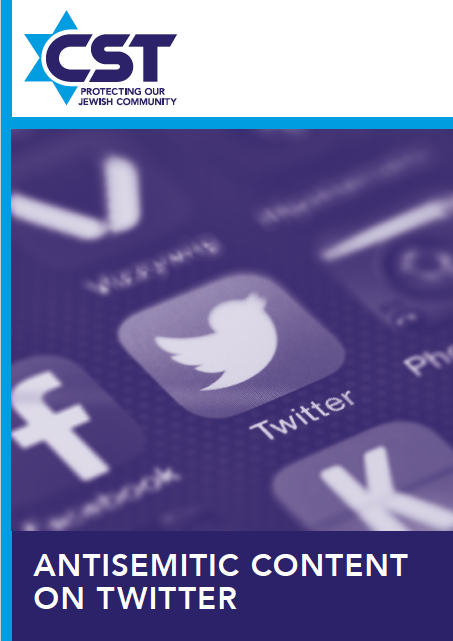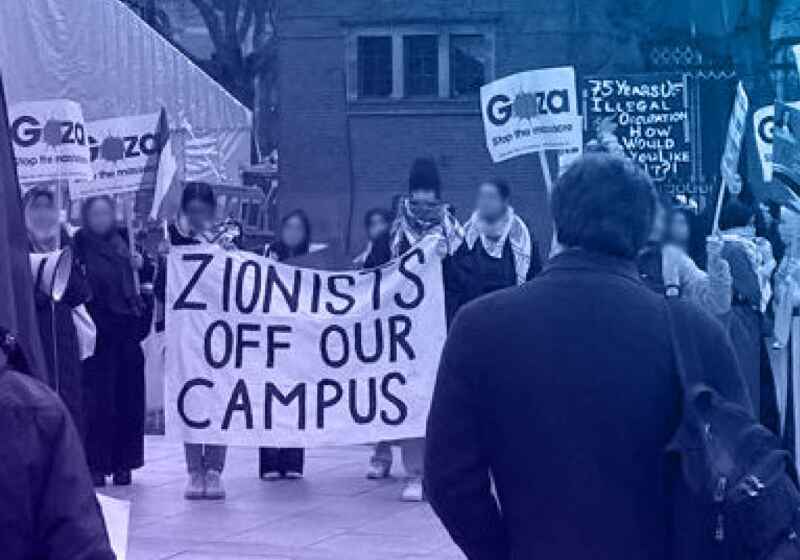CST Blog
New publication: Antisemitic Content on Twitter
22 February 2018
Today, CST is releasing a landmark report, Antisemitic Content on Twitter, that analysed 2.7 Million twitter posts relating to Jews and antisemitism, posted on Twitter between October 2015 and October 2016 in the UK.

Key lessons from the research report include confirming that offline spikes in antisemitic discourse increase levels of anti-Jewish hostility on Twitter; that, encouragingly, antisemitic tweets are less likely to endure on Twitter than counter-narratives tweeted by Jewish organisations and media; and a core group of Twitter users hostile to Jews and Judaism engage and exist in an online ‘echo chamber’ of like-minded users, and their poisonous discourse is unlikely to be disseminated and accepted widely beyond such groups.
The research project was led and authored by Professor Matthew Williams and Dr Peter Burnap of the Social Data Science Lab at Cardiff University was developed in tandem with CST and was generously funded by a donor who wishes to remain anonymous.
Though social media brings huge benefits to most of its users, it can often be exploited by those who wish to harass, threaten and insult Jews. Between a quarter and a fifth of the antisemitic hate incidents reported to CST in an average year now occur on social media, and most of these are on Twitter – because it is the most public platform, where anybody can view the opinions of anybody else.
The scale of this problem and its influence on how antisemitism operates required new research and analysis, using new data mining and machine learning techniques, which this report has sought to undertake.
CST hopes that this report provides some of that insight, and can be used by policy formers and social media companies alike as a resource to understand and combat hate online.
You can download a copy of the report, Antisemitic Content on Twitter.


